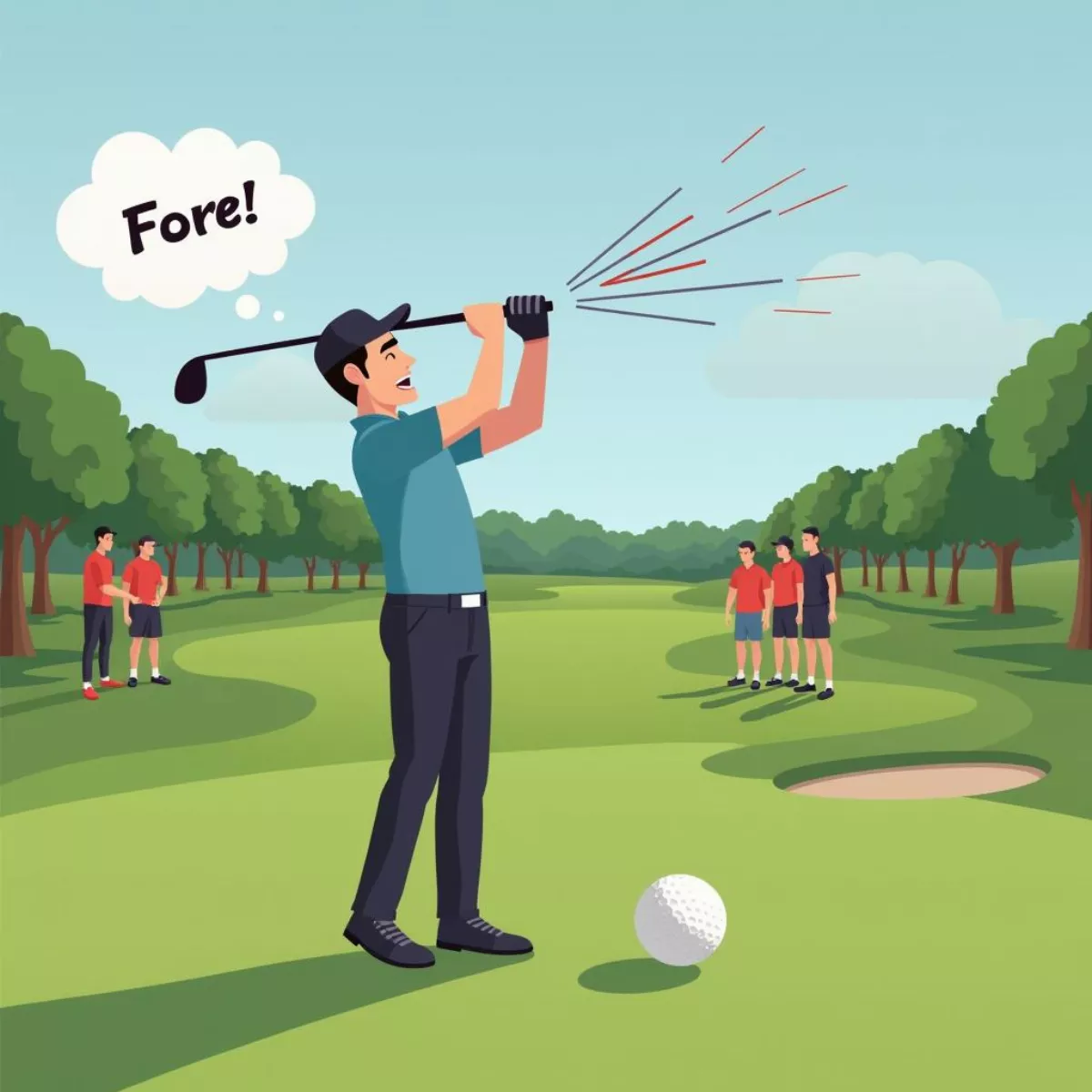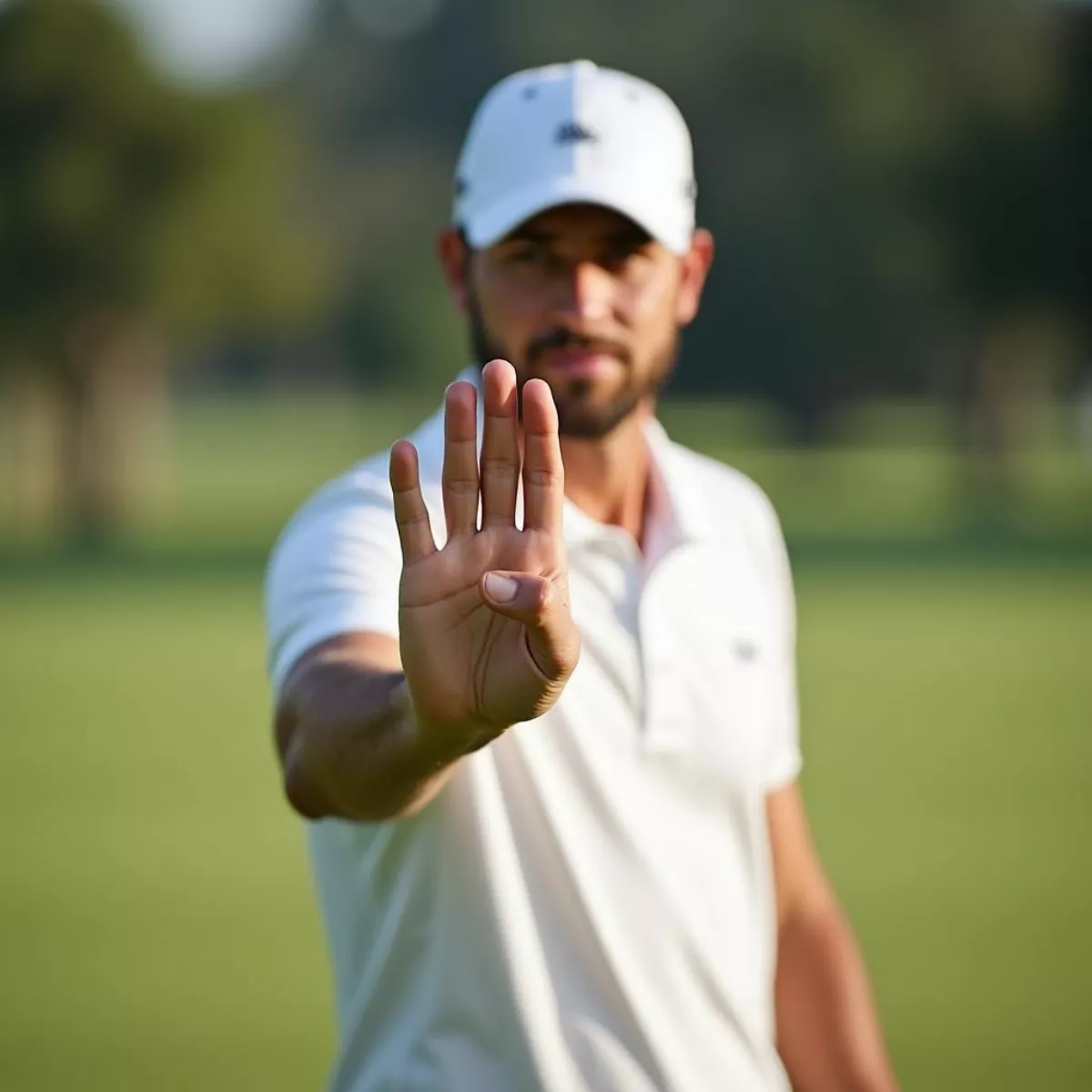what is a golfers warning

Golf is a sport that emphasizes skill, precision, and etiquette. Part of that etiquette involves being aware of your surroundings and respecting both your fellow players and the integrity of the game. One concept that often arises in golf discussions is the golfer’s warning. But what exactly is a golfer’s warning, and why is it vital to know? This article aims to educate you on the intricacies of golfer’s warnings and foster a respect for this essential aspect of the sport.
What is a Golfer’s Warning?
A golfer’s warning is a verbal or sometimes non-verbal cue given by a player to alert fellow players of a potential risk or hazard. It can range from a simple shout of “fore!” to more specific warnings related to the golf course’s condition or other players’ swings.
The Purpose of a Golfer’s Warning
- Safety: The primary goal is to ensure that all players on the course remain safe from flying golf balls or other hazards.
- Communication: It promotes open communication between players, fostering a friendly and respectful playing environment.
- Etiquette: It’s an essential aspect of golf etiquette, demonstrating respect for fellow players.
The importance of a golfer’s warning cannot be understated. Ignoring it can lead to serious injuries or altercations on the course.

The Common Types of Golfer’s Warnings
Understanding the different types of golfer’s warnings can enhance your awareness of the game and improve your social etiquette on the course. Here are some common types:
1. “Fore!”
The most recognized warning in golf is “fore!” This shout is called when a player believes their ball may strike another player or an observer. Typically, this warning should be issued as soon as the player makes contact with the ball, and it’s beneficial for everyone to pay attention and heed this warning.
2. Course Hazard Warnings
These warnings might arise in cases where there are sudden environmental changes, such as:
- Unmarked water hazards
- Wildlife on the course
- Unexpected weather changes (like incoming storms)
3. Equipment Warnings
Sometimes, players need to warn their fellow golfers about equipment-related issues. For instance, if a player spots a club head that seems loose or a broken tee, it’s courteous to inform others nearby.
4. Player Interference
This may include situations where a nearby player moves or distracts another golfer while they’re preparing to swing. Players might say “wait” or use hand signals to communicate that a swing could be compromised.

When Should You Give a Golfer’s Warning?
At the Tee Box
- Always warn fellow golfers when you hit your drive, especially if you’re not sure where it’s heading.
During Your Swing
- The moment you realize your ball might land near someone, shout “fore!”
If You Spot a Hazard
- Whenever you see a potential hazard that could affect others’ play, communicate it clearly.
How to Properly Deliver a Golfer’s Warning
Delivering a golfer’s warning effectively requires clarity and urgency. Here’s how to do it right:
- Use a Loud, Clear Voice: Make sure everyone can hear you.
- Make Eye Contact: Ensure the player(s) you’re warning are aware of your presence.
- Point if Necessary: If someone is in the line of a stray ball, pointing may help clarify your warning.
- Follow Up: If the situation changes or you observe something new, don’t hesitate to warn again.
Tips for Etiquette Around Warnings
- Avoid shouting during someone’s backswing.
- Only use “fore!” when it’s appropriate.
- Don’t take offense if someone warns you.
Consequences of Ignoring a Golfer’s Warning
Ignoring a golfer’s warning can have serious repercussions. Here are a few potential outcomes:
| Consequence | Description |
|---|---|
| Injury | Serious injuries can occur from stray balls. |
| Disqualification | Depending on the severity, you may face penalties. |
| Disrespect | Ignoring warnings can lead to a loss of camaraderie. |
| Legal Action | In extreme cases, ignoring safety could lead to civil suits. |
Notable Quotes From Golf Professionals
- “Golf is a game of respect; we must warn our fellow players.” – Anonymous Pro
- “Safety must be at the forefront of every golfer’s mind.” – Another Golf Aficionado

Key Takeaways
- A golfer’s warning is essential for safety and etiquette on the golf course.
- Common warning types include “fore!”, course hazards, equipment issues, and player interference.
- Properly delivering a warning requires clarity, urgency, and respect.
- Ignoring warnings can lead to serious consequences, including injury and legal action.
FAQs about Golfer’s Warnings
1. What should I do if I hear someone shout “fore”?
- Immediately stop and look for the incoming ball. Move to a position where you can avoid getting hit.
2. Is it polite to shout “fore!” on the course?
- Yes, it’s not just polite; it’s expected, especially if someone’s safety is concerned.
3. What if I’m playing alone? Should I still give warnings?
- While it’s less likely, if playing alone in a populated course, it’s wise to be aware of others and give warnings if necessary.
4. Can I warn someone without saying “fore!”?
- Yes, you can use hand signals, but shouting remains the most effective method.
5. What constitutes a golfer’s warning besides “fore!”?
- Warnings about course conditions, equipment issues, or player interference also qualify.
6. Is it mandatory to warn others while playing?
- While it might not be mandatory in a strict sense, it’s a crucial part of golf etiquette and common courtesy.
7. How can I practice giving warnings effectively?
- Stand on a range with friends and practice delivering warnings as you swing.
8. Can repeated violations of warning etiquette lead to expulsion from a golf course?
- Depending on a course’s regulations, repeated violations can lead to disciplinary actions.
9. What to do if someone ignores my warning?
- Politely approach the individual after the round to discuss the etiquette, ensuring a mutual understanding.
In conclusion, golfer’s warnings are a pivotal element in promoting safety and respect in the game of golf. By understanding their purpose and how to deliver them properly, you play your part in preserving the integrity of the sport. Remember, golf is not just about hitting the little white ball; it’s about doing so responsibly and with decorum. Enjoy your rounds, stay safe, and keep those warnings at the forefront of your mind!
For more insights about golf etiquette, check out our other articles on golf rules and etiquette or how to improve your golf game. Happy golfing!